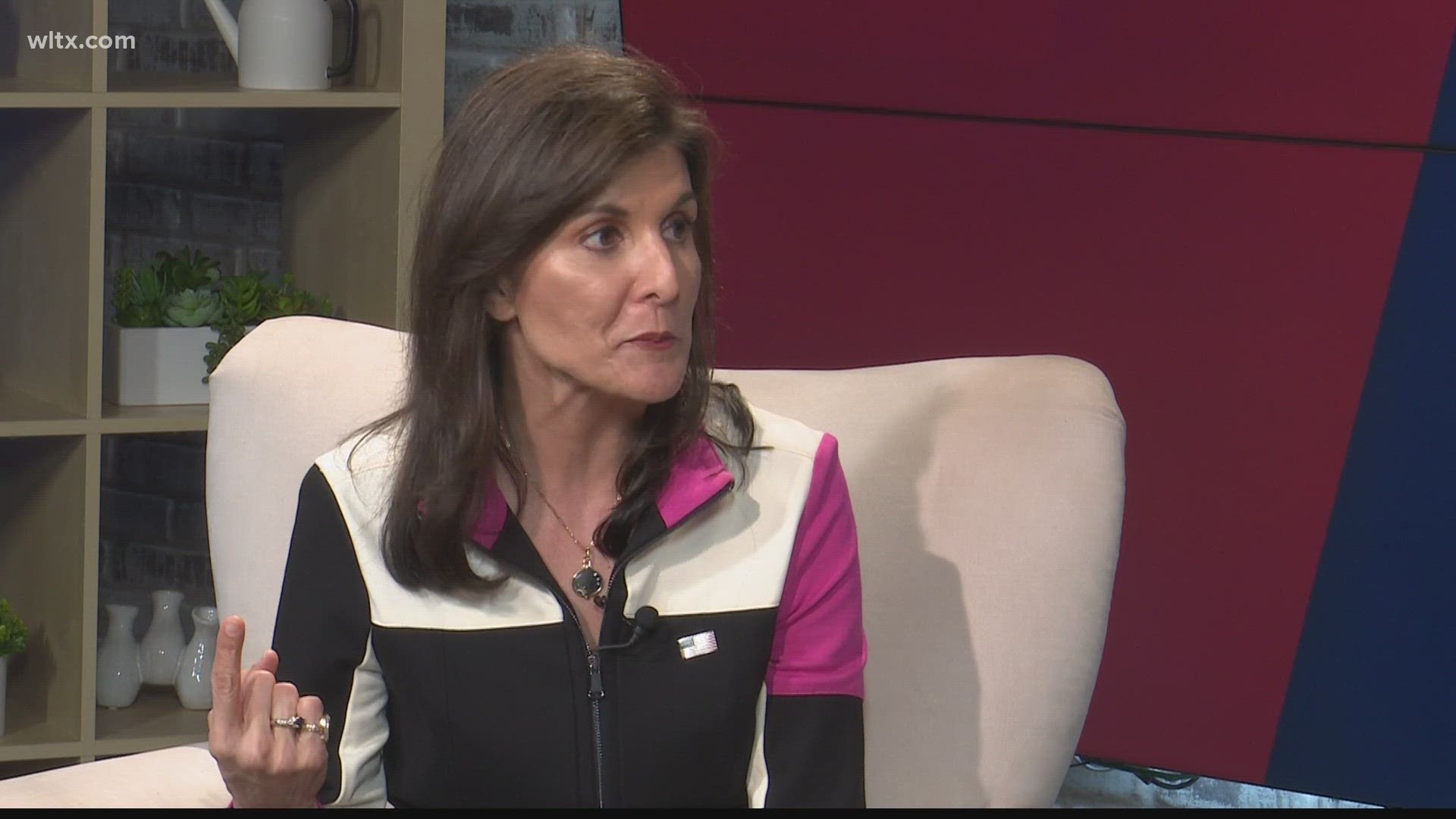NEW YORK — It turns out not all politics is local.
In South Carolina's 2024 Republican primary election, most voters look back approvingly on Nikki Haley's time as the state's governor, but also say it doesn't matter to them that she's from the state — and instead say that they're thinking nationally about the party's nomination.
So, for that and many other reasons, Donald Trump has a very big advantage here, just as he does with Republicans nationally.
Plus, nearly half the party's voters here identify as "MAGA" — in similar numbers to Republicans nationwide — and they don't think Haley is part of that movement.
Going forward, Trump's voters don't seem open to change in the coming weeks — almost nine in 10 are "firmly decided" — leaving Haley's arguments about things like electability or chaos struggling to find resonance.

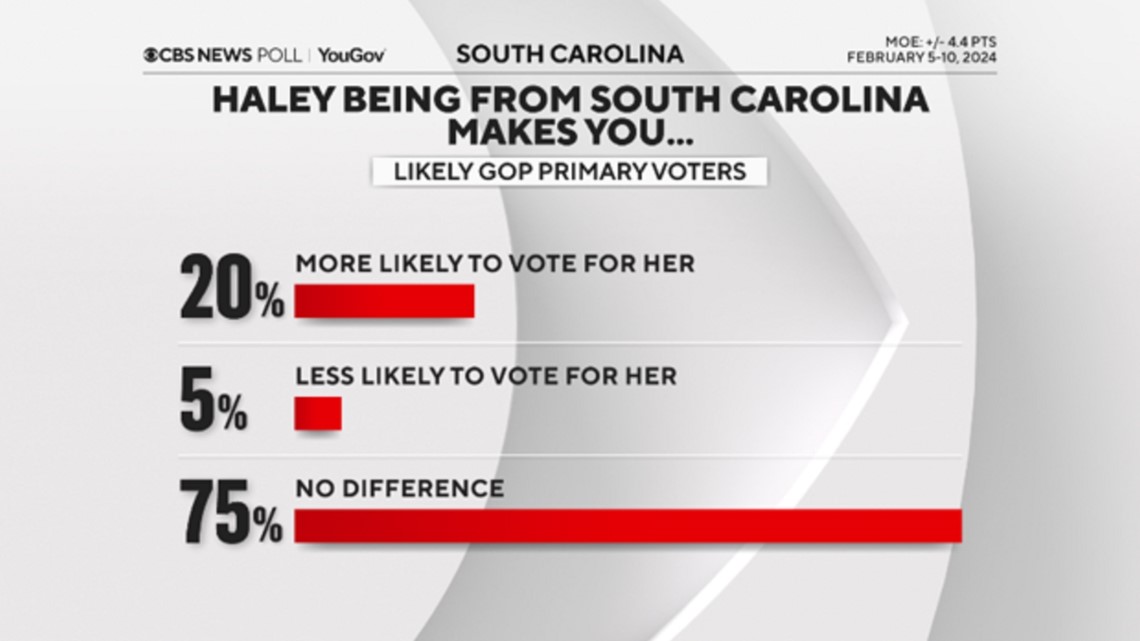

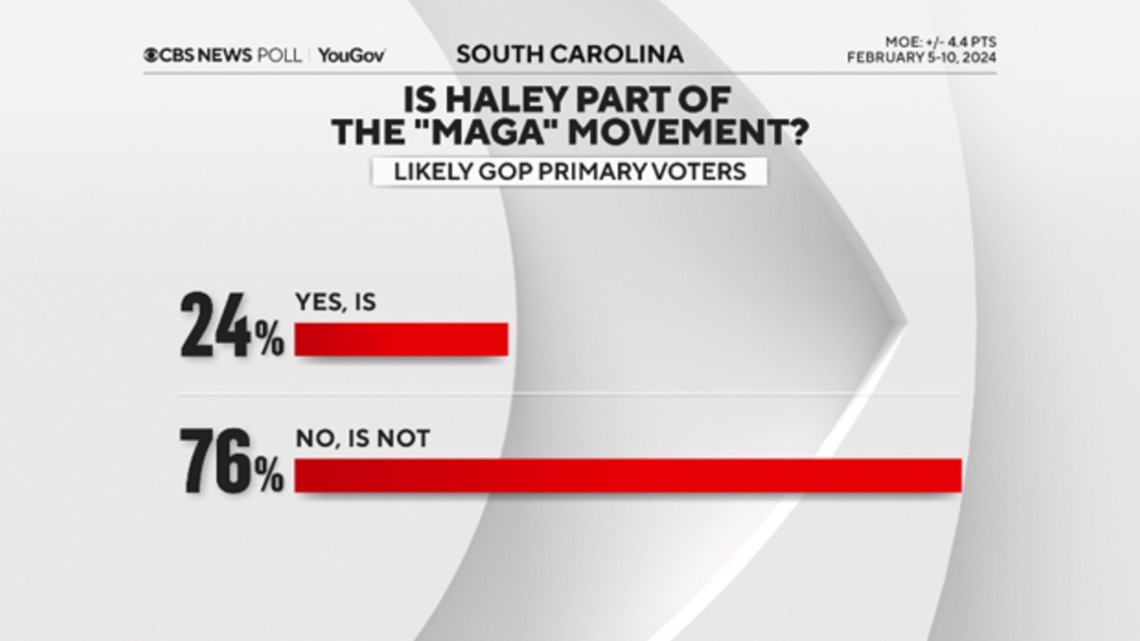

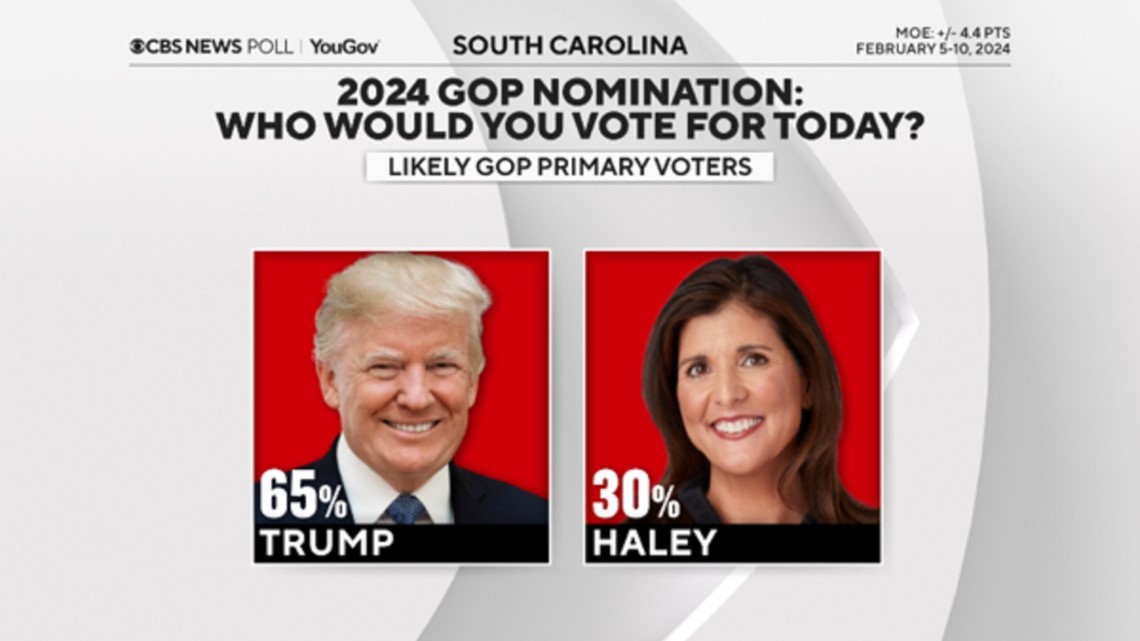

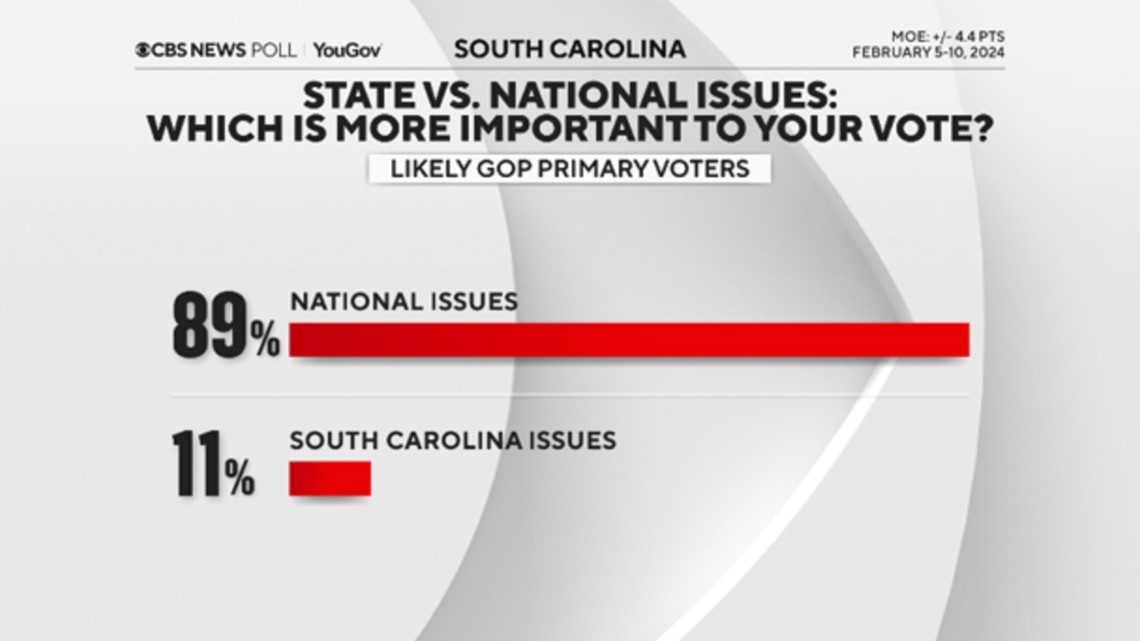

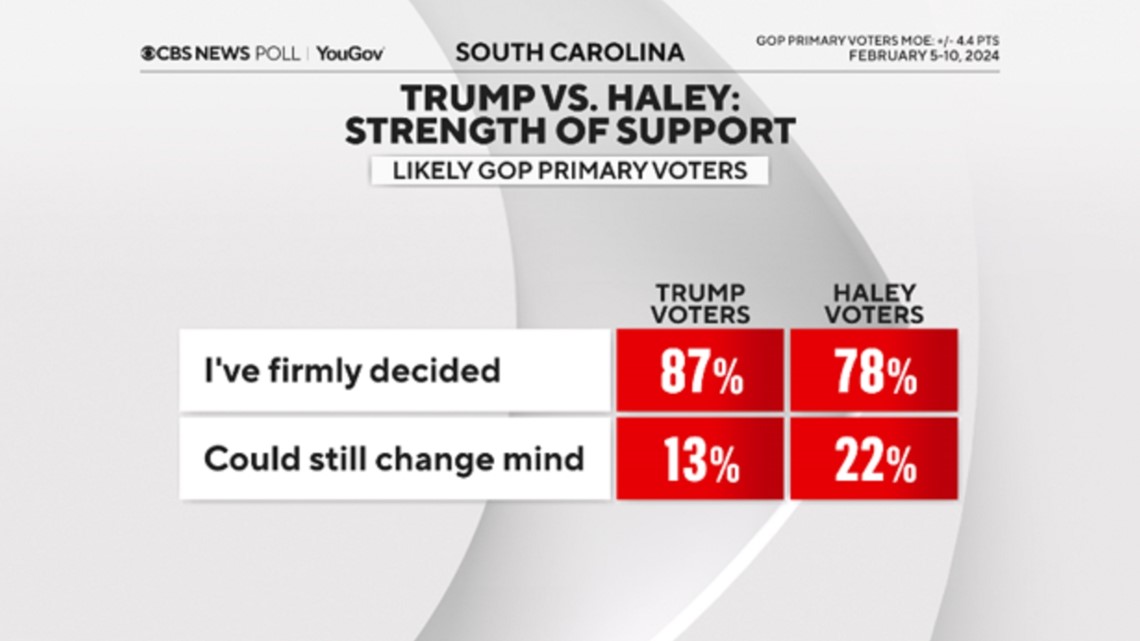
Further negating any home-state edge, Trump gets better marks retrospectively: his approval rating for his time as president is more than 20 points higher than Haley's is as governor.

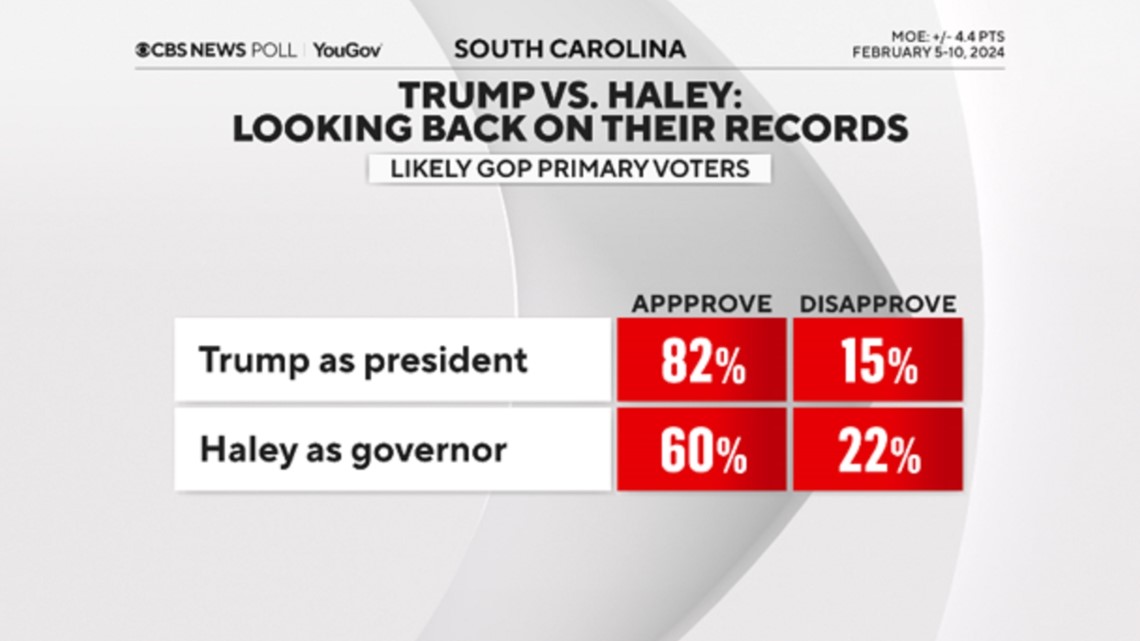
Trump's array of advantages includes easily besting Haley on being seen as "fights for people like you" — a measure that has been a marker of his support in polls and early primaries.
Echoing primary voters in other states, most also describe Trump as "prepared," and a "strong leader" and in addition to that, "tough." That's comparably less the case for Haley, though she has an edge on being seen as "likable."

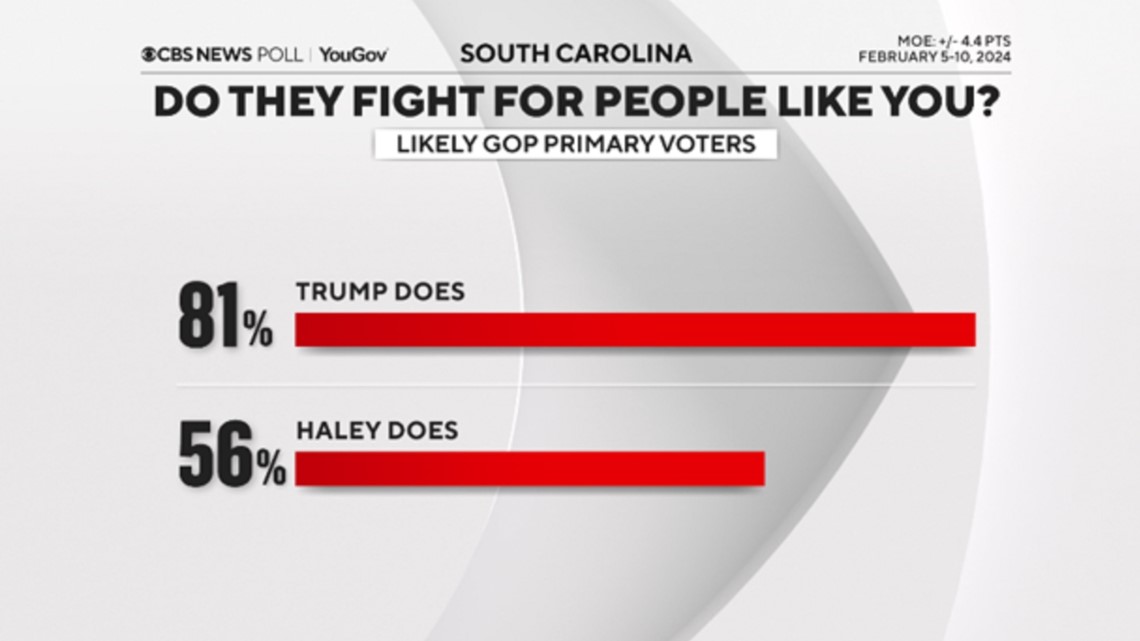

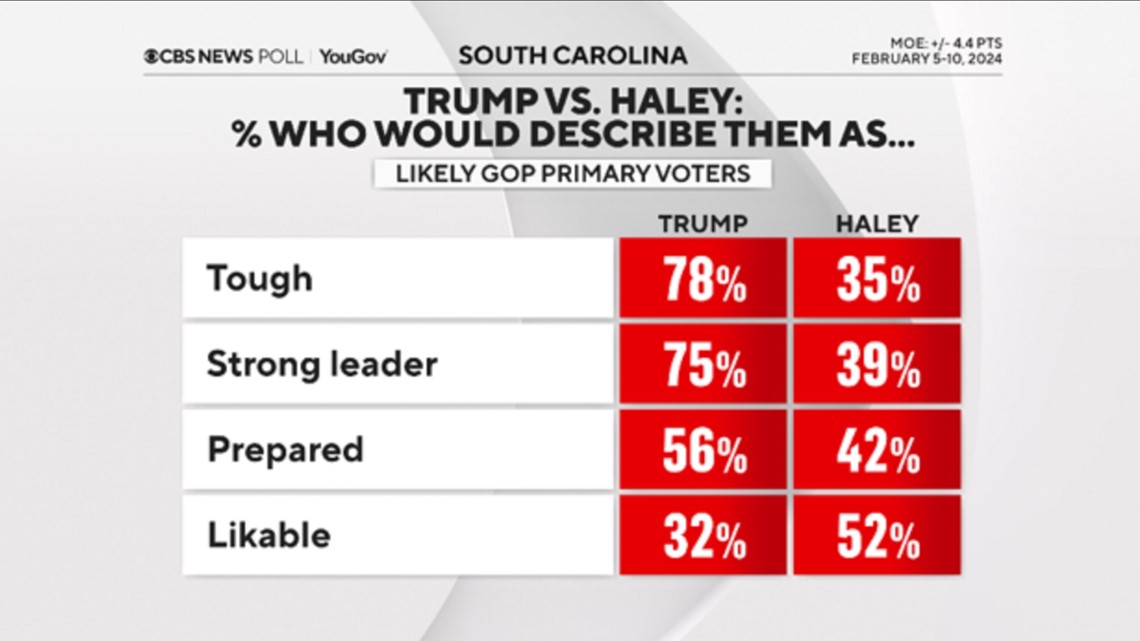
But many of Haley's campaign arguments aren't resonating. Most Trump voters don't see his legal fights as a reason they might consider Haley instead.
As CBS News polling has found in Iowa and New Hampshire, more voters here say Trump is fit to serve as president if convicted of a charge than say he isn't.

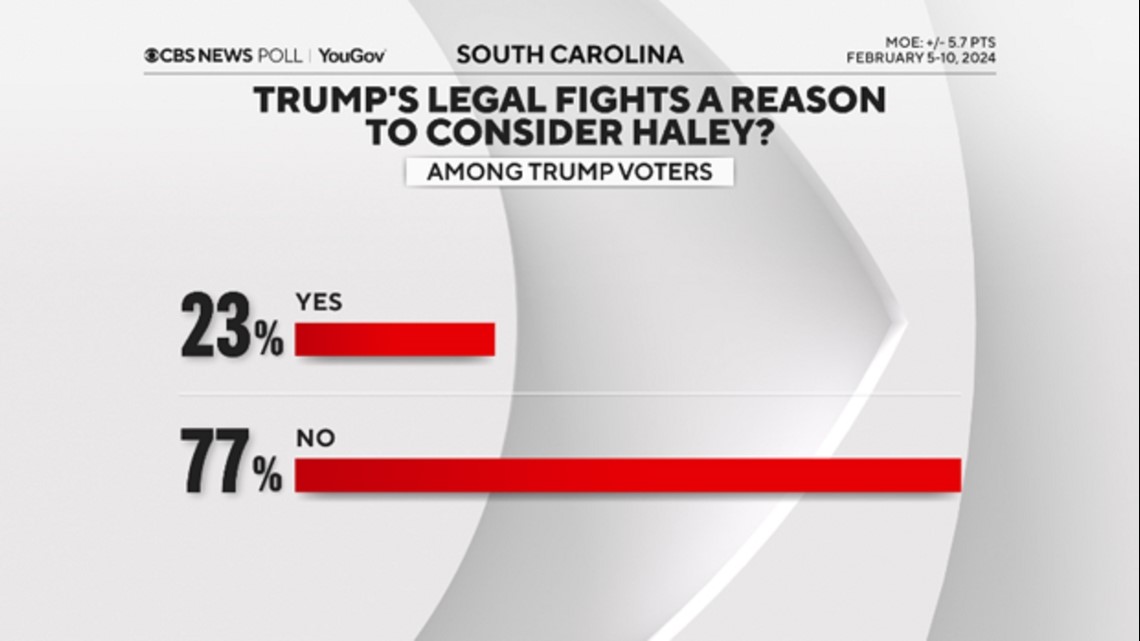

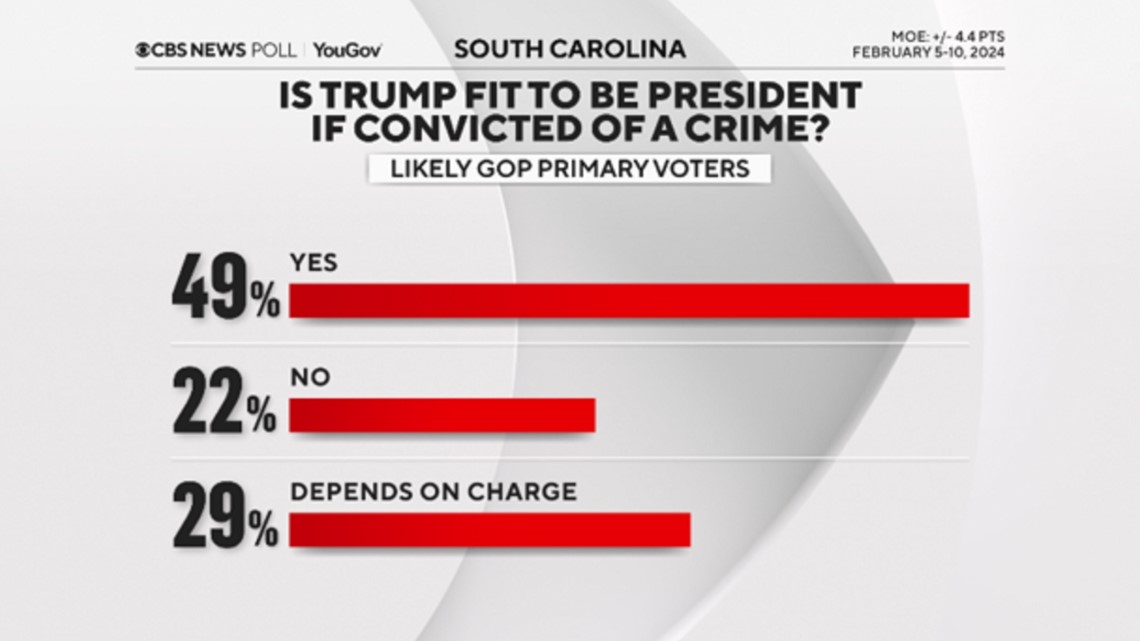
Most don't see critiques of Trump's mental fitness as fair.

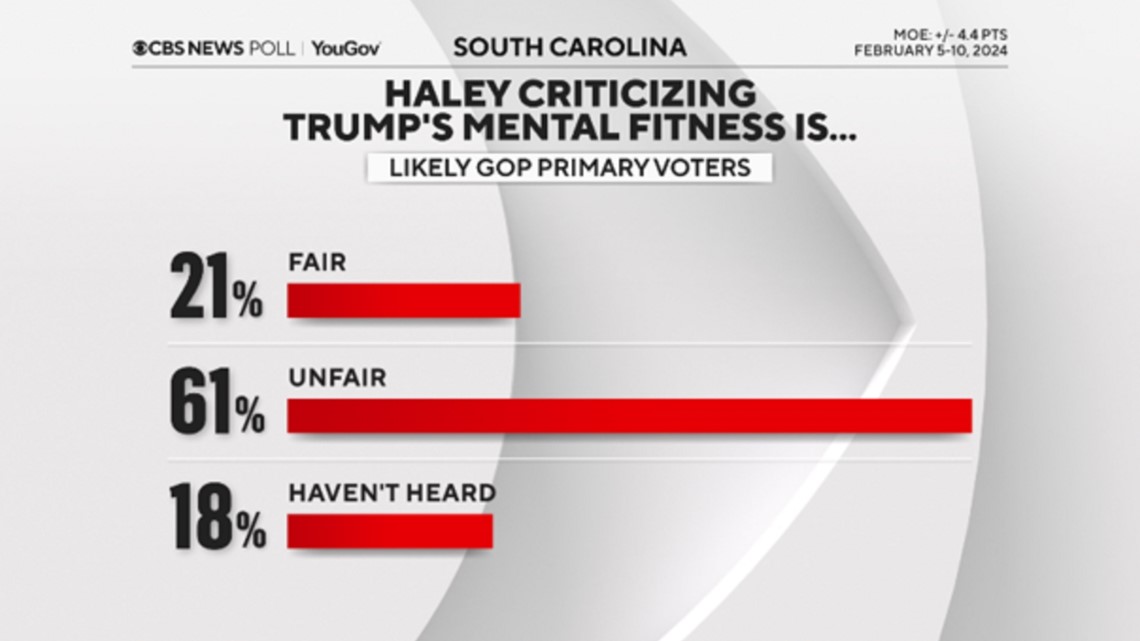
And voters tend to think it's Trump who has the better chance of beating Joe Biden. (This also looks similar to voters nationally.)

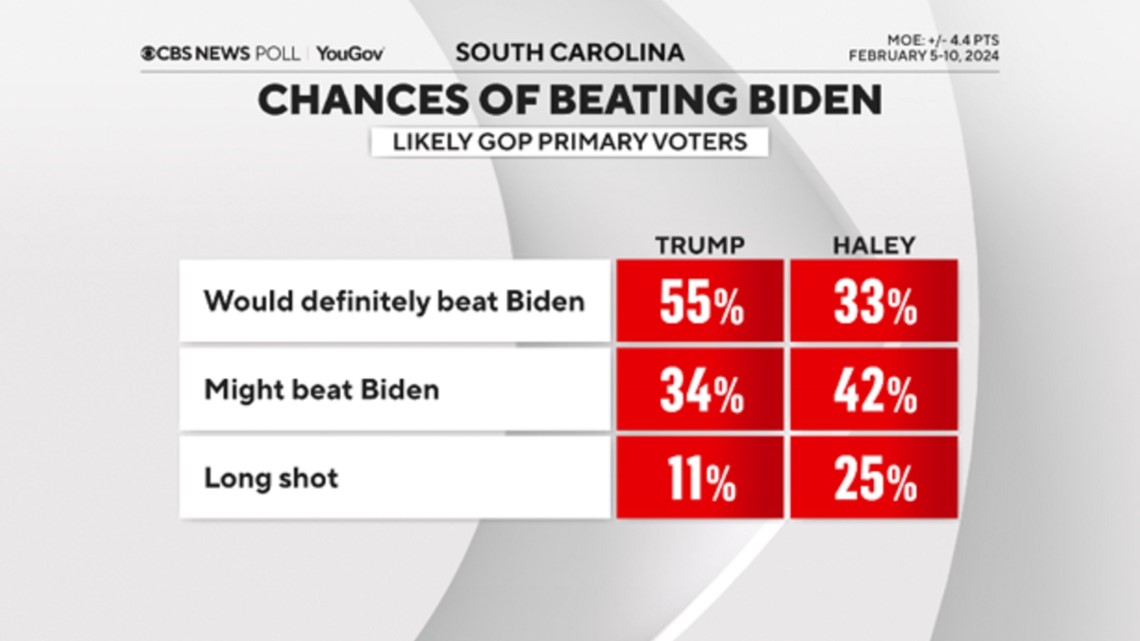
Then, looking forward, voters see Trump's policy approaches more likely to deliver. Most think they'd be better off financially with him, as opposed to Haley. Though most think both would make the U.S.-Mexico border more secure, an overwhelming number feel Trump would do so. And more think Trump would limit U.S. overseas military involvement. (When they do, they're voting for him.)

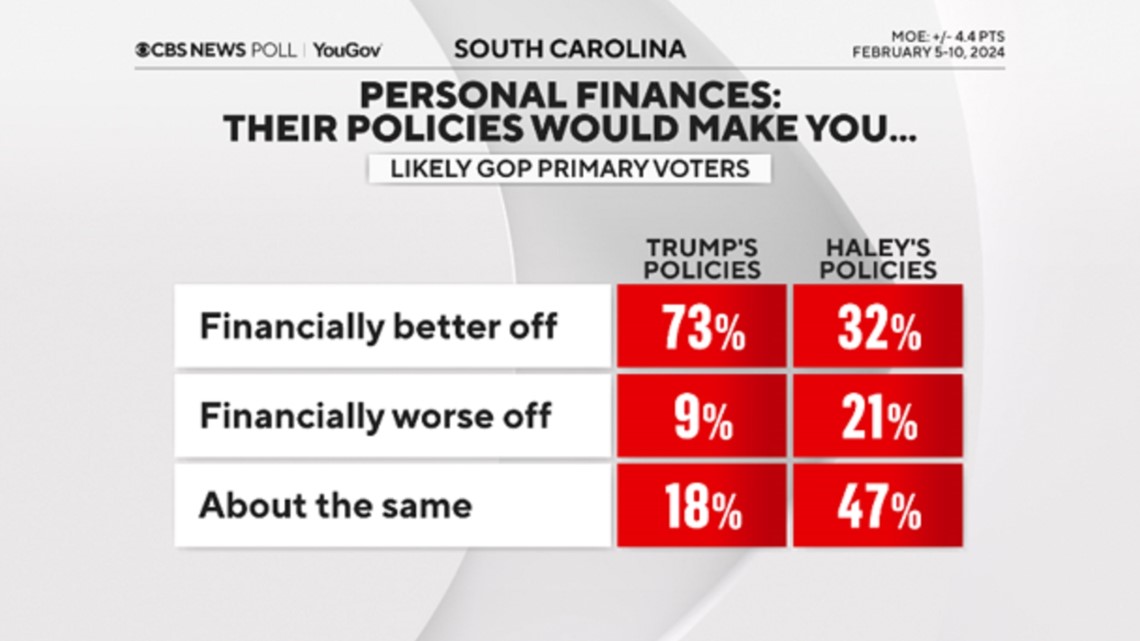

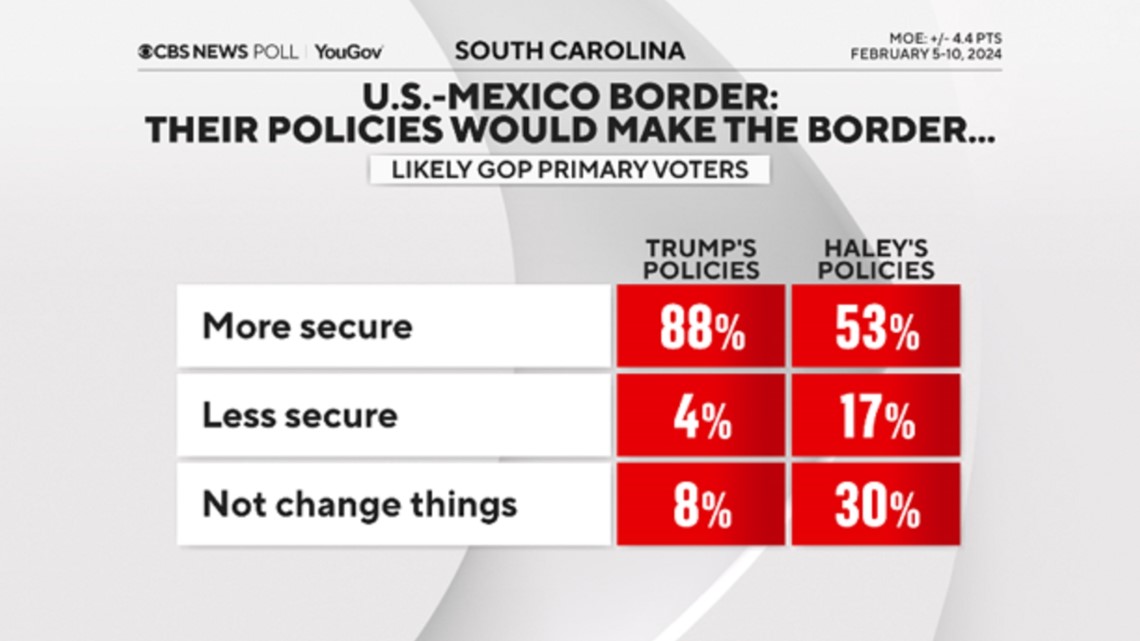

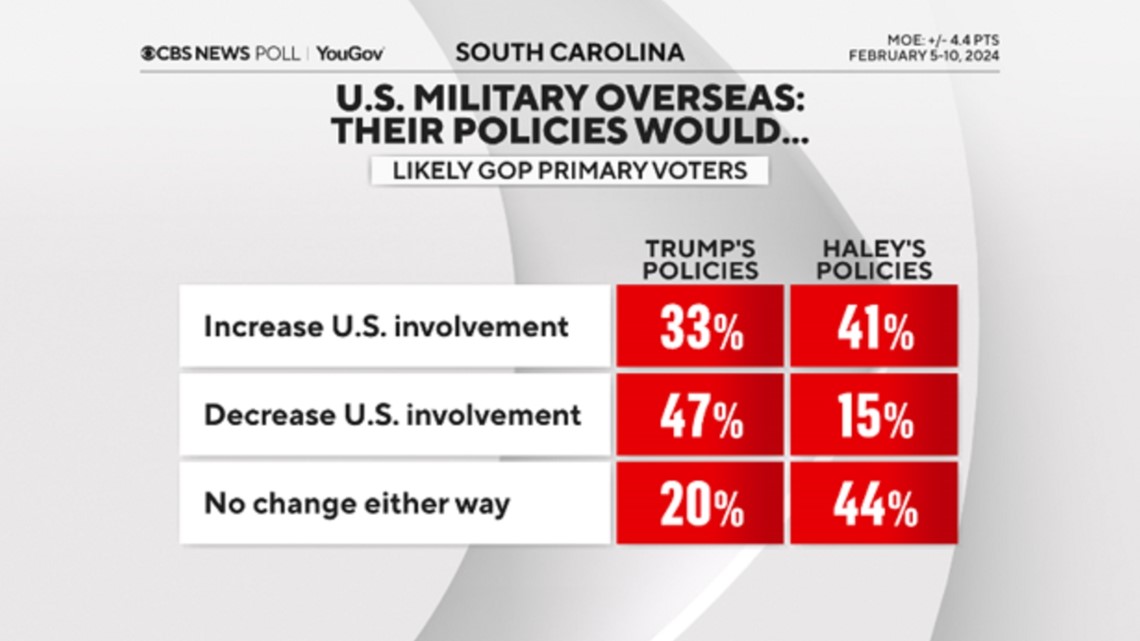
The evangelical composition of the South Carolina electorate also helps Trump. These voters have always been a strong part of his base, and he wins their backing easily. That shows up on the abortion issue, among others. More think Trump than Haley would back a national abortion ban.
Finally, this doesn't look like a vote choice driven by views of who is closer to the party "establishment" and who is taking it on, even as there's been some campaign rhetoric about those themes. Both Haley and Trump are seen as "part of the Republican establishment." That's especially true for Haley, but about six in 10 also describe Trump this way. And those saying so of Trump by and large think of it as positive.
This CBS News/YouGov survey was conducted with a representative sample of 1,483 registered voters in South Carolina between February 5-10, 2024, including 1,004 likely Republican primary voters. The sample was weighted according to gender, age, race, education, and geographic region based on the U.S. Census Current Population Survey, as well as past vote. The margin of error is ±3.0 points for the sample overall and ±4.4 points for likely Republican primary voters.

